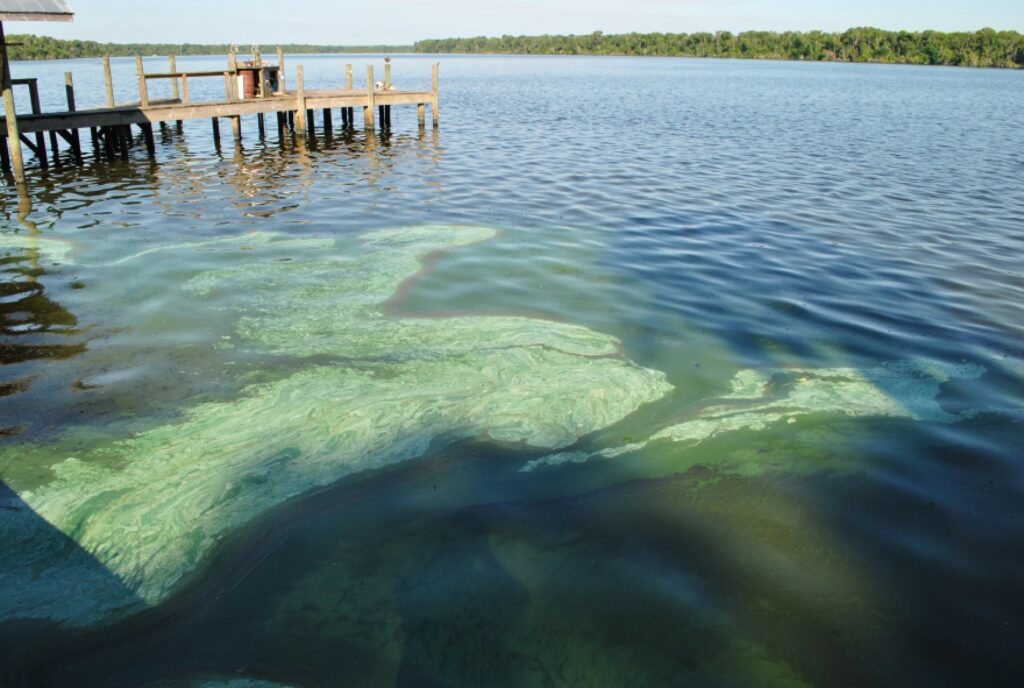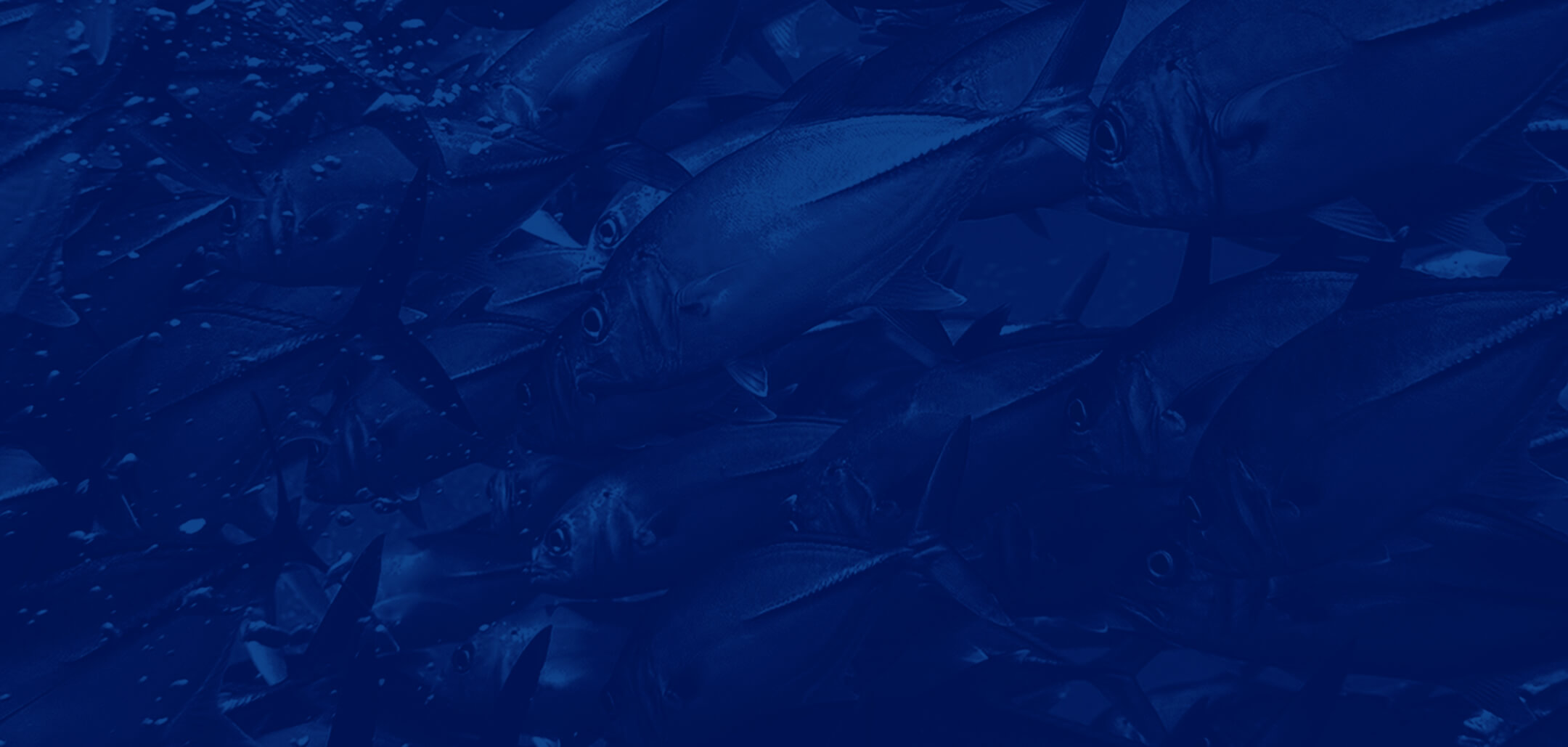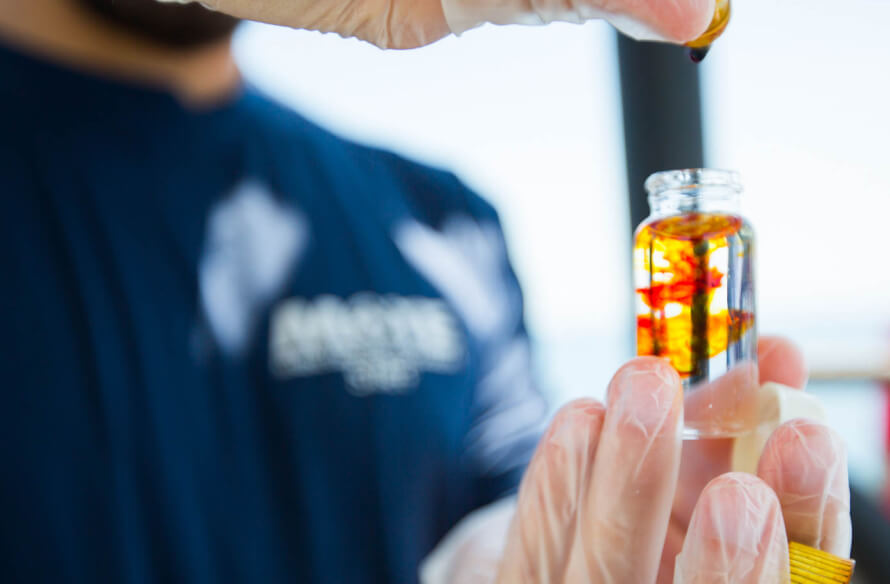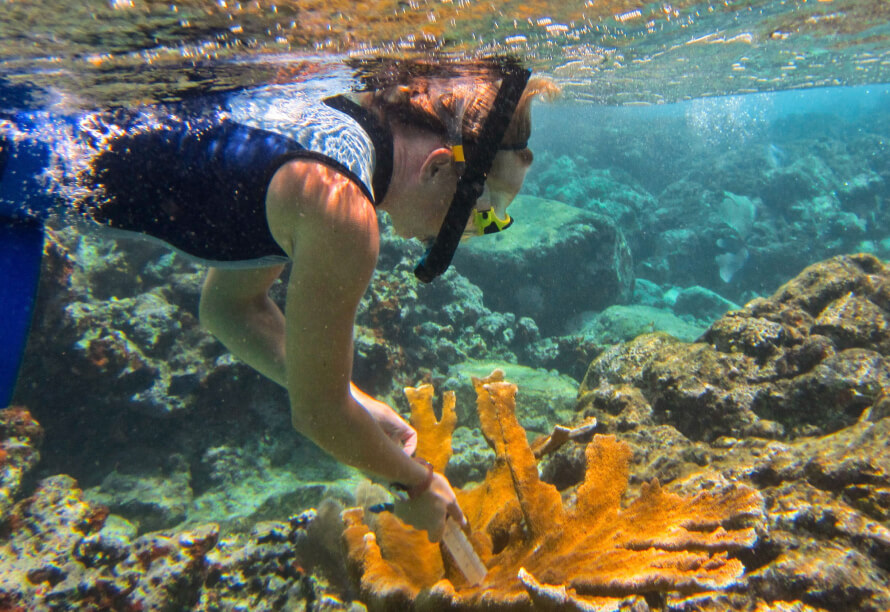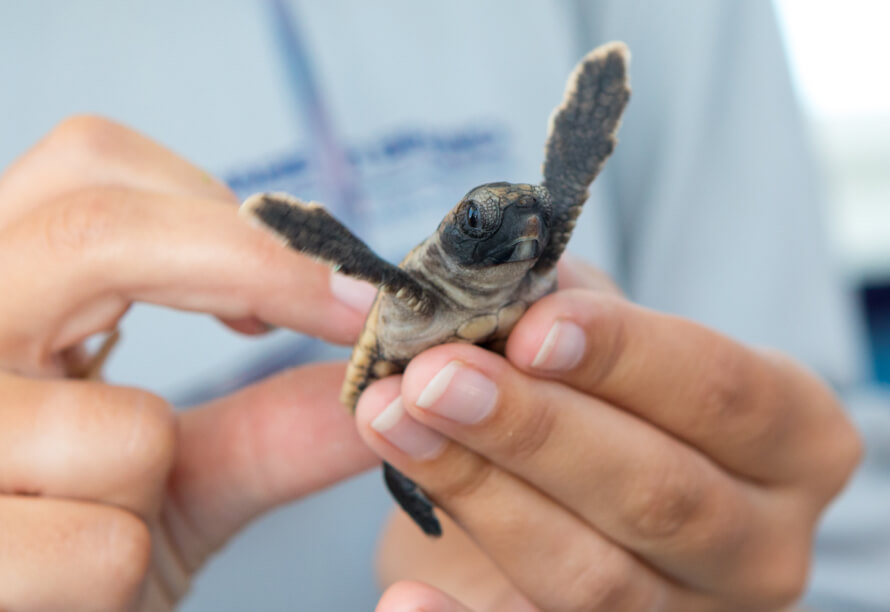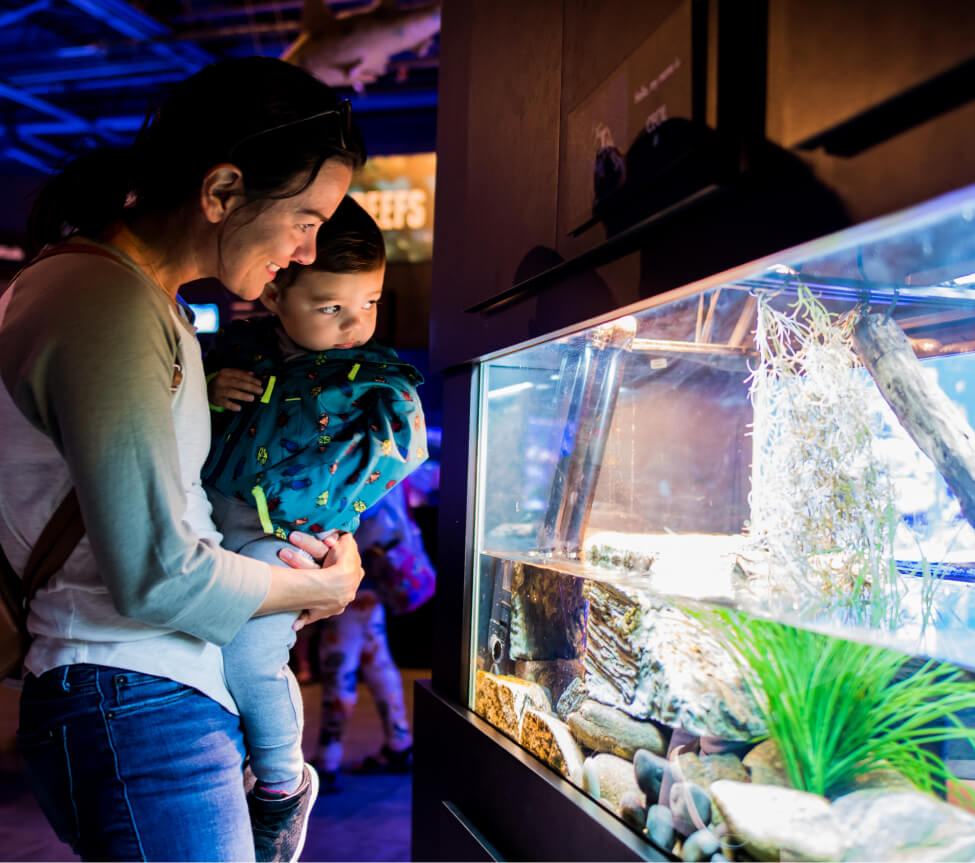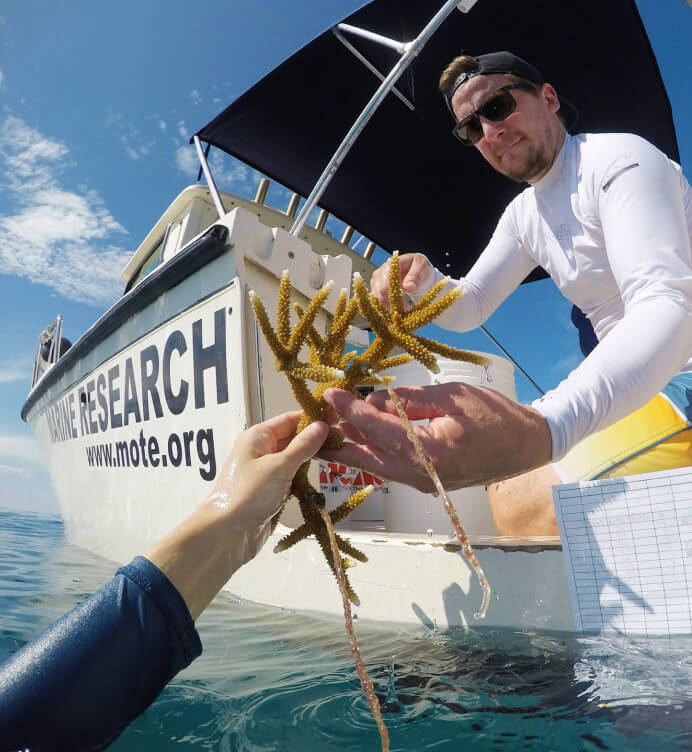
Today's Research for Tomorrow's Oceans
Join our world-class marine scientists in their mission to conserve and power the sustainable use of our oceans.
Areas of Research
Innovation and technology can unlock the oceans' most powerful secrets. At Mote, our innovators uncover new marine sources of medicine, novel methods to reduce the impacts of red tide and other harmful algae, and smart strategies and tools to take the pulse of our oceans.
Sharks, sea turtles, manatees, corals and other iconic species enrich our lives—and Mote is dedicated to saving theirs. With decades of wildlife research and new studies unfolding every day, Mote's discoveries power tangible progress toward sustaining these species for generations to come.
Coral reefs are at risk of becoming a paradise lost. Mote scientists work to secure their survival. We've restored 170,000 corals to Florida's Coral Reef and pioneered methods to grow, breed and stress-test thousands of native coral genotypes against major environmental challenges, ensuring restored reefs carry resilience in their very DNA.
Healthy oceans mean a healthier quality of life for all. Mote studies ocean phenomena that hit communities hardest—red tide, climate change, pollution—to develop real solutions, from red tide mitigation to coastal condition monitoring powered by community science.
Ocean resources sustain people and economies worldwide—but only if we sustain them. Mote scientists develop technology to produce sustainable, aquaculture-farmed and cell-cultured seafood, and we pioneer research to replenish wild fisheries and fill data gaps for fisheries management.
Each marine animal we rescue, rehabilitate and release has a new chance to thrive and contribute to its population, and each deceased animal recovered provides vital clues for protecting its species. Report a stranded or deceased sea turtle or marine mammal in Sarasota or Manatee counties through Mote's 24-hour hotline.
Our Network Is Global
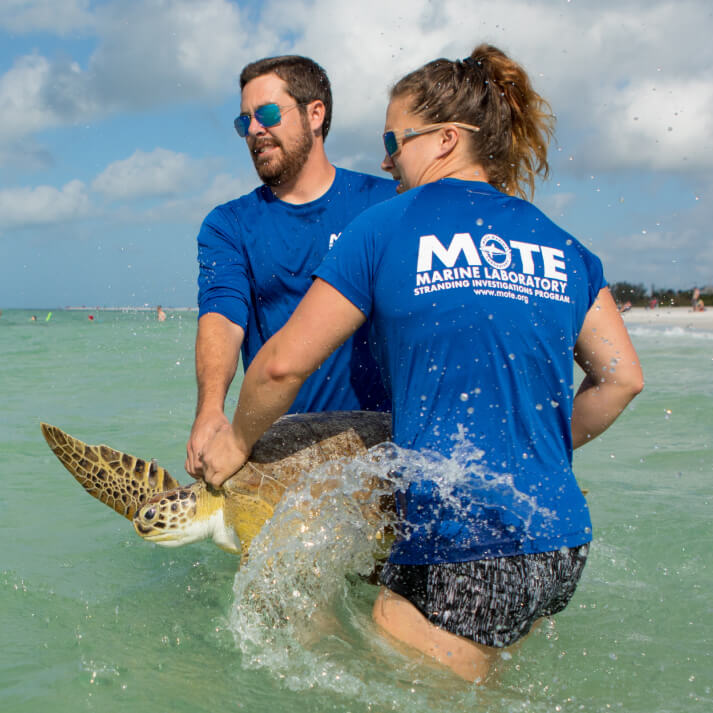
Explore Opportunities
At Mote, we recruit and nurture the best and brightest minds, including those historically underrepresented in marine science and technology. Explore our research opportunities.

Engage Minds
Learn about the issues and challenges Mote scientists tackle every day. Browse our collections for historic and current insight on our world’s oceans. We’re here to share research and exchange ideas, big and small.


